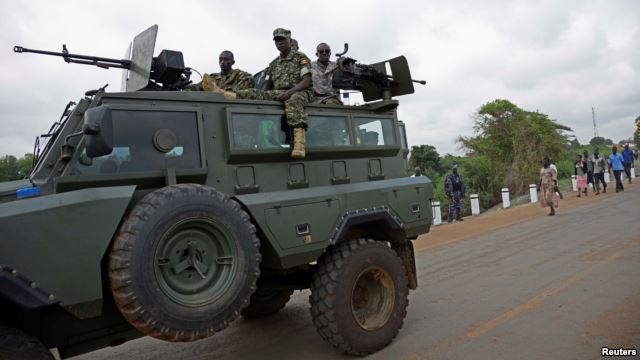Chief Secretary to the Government of Malawi, George Mkondiwa has described Malawi as a one of the least developed countries with a big ambition of arresting and reversing environmental degradation in an effort to adapt to and mitigate climate change.
Mkondiwa made the remarks on Wednesday when he delivered a key note address on the overview of the National Development Planning in the Face of Climate Change ; The Case Of Malawi, during the ongoing National Adaptation Plans – NAP EXPO, in Bonn, Germany.
The event is being hosted by the Least Developed Countries Expert Group (LEG) where participants will be sharing experiences, lessons learnt and best practices on how to advance National Adaptation Plans (NAP).
This year Malawi launched its NAP process and prepared a road map highlighting key milestones to be achieved.
The NAP focuses on major issues of agriculture and food security, water shortage, ecosystems management, energy and climatic risks.
According to Mkondiwa, Malawi has to be on the lookout on issues of climate change as most of its operations are dependent on natural resources.
“Malawi is an agro-based economy, primarily based on rain-fed production with the agricultural sector accounting for about 42% of GDP and 81% of export earnings. With major crops grown being tobacco, tea, coffee, maize and rice.
“Furthermore, 98% of Malawi’s electricity is generated from hydropower, and almost all of that is from one river, the Shire River.
“In this case, any changes in climate affect agriculture with consequent effects on economic growth and peoples livelihoods,” said Mkondiwa.
He said Malawi has experienced a number of adverse effects of climate change which include floods, drought, stormy rains, hailstorms, landslides, earthquakes, disease outbreaks, wild fires, among others whose intensity and frequency are on the increase.
He further told delegates that the 2015/2016 growing season was characterized by two contrasting weather which have resulted in loss of human lives, destruction of properties and in some parts, dry spells which led to severe food shortages and water scarcities.
Also, Malawi growing seasons have shifted over the last 10-20 years with rains becoming more erratic and the growing season typically 1 to 2 months late and generally shorter.
Against this background, he said, government is implementing all tangible measures to ensure Malawi makes strides in the fight against climate change.
“These include the development of policy and institutional frameworks and management tools as well as establishment of various programmes to address climate change effects.
“Under the Malawi Growth and Development Strategy II (MGDS II), the Government of Malawi included climate change as one of the priority areas to be managed. The country has developed a National Climate Change Management Policy which will ensure a coordinated and harmonised approach to climate change management in the country,” Mkondiwa told the delegates.
Some of the other instruments and tools to respond to climate change which include: Climate Change Response Framework, National Adaptation Programmes of Action (NAPA), Nationally Appropriate Mitigation Actions (NAMA) and a National Climate Change Investment Plan which will guide implementation and investment of climate change related programmes in the country.
Some of the delegates in the meeting include the Chair of the Least Developed Countries Expert Group, Mr. Abias Huongo, the Co-Chair of the Adaptation Committee, Mr. Minpeng Chen, the Chair of the Least Developed Countries Group, Mr. Tosi Mpanu-Mpanu, the Chair of the Subsidiary Body for Implementation, Mr. Tomasz Chruszczow and several UN Representatives.
Source: Malawi News Agency



